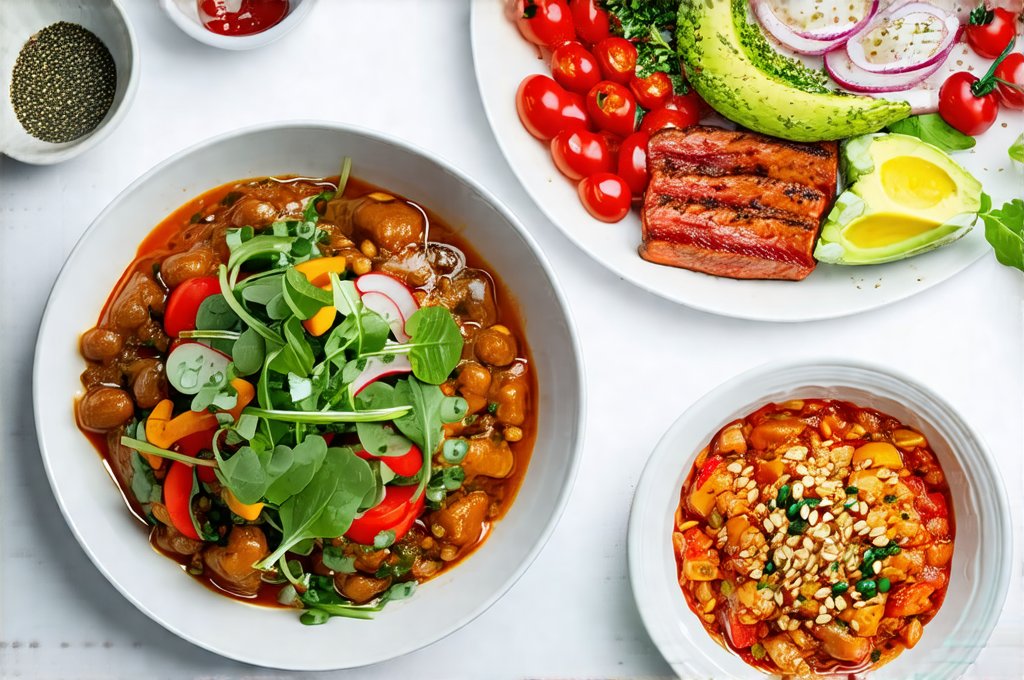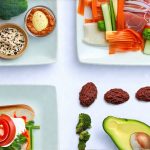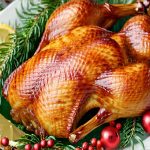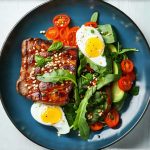The aftermath of indulging in rich foods – whether during a holiday feast, weekend celebration, or simply giving into cravings – often leaves us feeling sluggish, bloated, and generally uncomfortable. It’s a common experience, and one that many of us try to quickly “undo” with restrictive diets or intense exercise. However, the body doesn’t respond well to sudden shifts; instead, it needs gentle support to re-establish digestive harmony. Focusing on recovery meals – specifically designed to aid digestion and minimize discomfort – is a far more effective approach than punishment. These aren’t about deprivation; they are about strategic nourishment that assists your body in returning to its natural state of balance.
A key misunderstanding lies in the idea that we need to drastically alter our behavior immediately after overeating. The digestive system, like any complex biological process, requires time and appropriate resources to function optimally. Overloading it with more stress – through overly restrictive diets or excessive exercise – can actually prolong discomfort and potentially disrupt metabolic processes. Recovery meals prioritize easily digestible foods, hydration, and gentle stimulation of the gut, helping to restore balance without adding further strain. They are a proactive step towards feeling better, not a punitive measure for indulging.
Gentle Reset: Foods That Support Digestion
The cornerstone of weekend recovery is choosing foods that minimize digestive burden. This means prioritizing options that are easily broken down and absorbed, avoiding those known to exacerbate bloating or discomfort. Lean proteins are excellent choices as they provide essential amino acids without the heavy fat content often found in celebratory meals. Think grilled chicken or fish rather than fried or processed meats. Similarly, complex carbohydrates – like sweet potatoes, quinoa, or brown rice – offer sustained energy and fiber without causing rapid blood sugar spikes that can further disrupt digestion. Focusing on whole, unprocessed foods is paramount.
Beyond the specific food choices, how you prepare them matters too. Steaming, baking, grilling, or poaching are all preferred methods over frying or adding excessive amounts of oil. Seasoning with gentle herbs and spices – ginger, turmeric, peppermint – can also aid digestion. Avoid overly spicy foods, which can irritate the stomach, and limit dairy intake if you’re lactose intolerant, as this can contribute to bloating. Hydration is also crucial; water helps move food through the digestive tract and prevents constipation, a common consequence of overeating.
Crucially, portion control remains important even during recovery. While it’s tempting to “balance out” indulgence with an equally large meal, this defeats the purpose. Smaller, more frequent meals are far easier for the digestive system to handle than one massive serving. Think of it as gently guiding your body back on track, rather than overwhelming it with another challenge. This approach allows the gut time to rest and rebuild its natural processes.
The Power of Probiotics & Prebiotics
A healthy gut microbiome is essential for efficient digestion. Overeating can disrupt this delicate balance, leading to bloating, gas, and discomfort. Introducing probiotic-rich foods – like yogurt (if tolerated), kefir, sauerkraut, kimchi, or kombucha – can help restore beneficial bacteria populations. These live microorganisms aid in breaking down food, improving nutrient absorption, and strengthening the gut lining. However, it’s important to note that not all probiotics are created equal; choose options with a variety of strains for optimal benefit.
Alongside probiotics, prebiotics play a vital role. Prebiotics are essentially food for probiotic bacteria, helping them thrive. Excellent sources include bananas, onions, garlic, asparagus, oats, and apples. Combining probiotic-rich foods with prebiotic-rich foods creates a synergistic effect, fostering a healthier gut environment. This isn’t about adding new things; it’s about incorporating naturally occurring elements that support your body’s inherent ability to heal.
Consider the timing of probiotic intake as well. While some people benefit from taking probiotics with meals, others find they work better between meals when stomach acid is lower. Experiment to see what works best for you. Ultimately, a consistent intake of both probiotics and prebiotics can significantly improve digestive health and resilience, making it easier to recover from occasional overindulgence. If you experience GERD and metallic taste after meals, consider how probiotic intake affects your symptoms.
Hydration Strategies Beyond Water
While water is the foundation of any recovery plan, simply drinking eight glasses a day isn’t always enough – or appealing! Variety is key to staying adequately hydrated. Herbal teas, particularly peppermint or ginger tea, can soothe digestive discomfort and aid in reducing bloating. Peppermint helps relax intestinal muscles while ginger has anti-inflammatory properties that can calm the stomach.
Electrolyte imbalances are common after overeating, especially if your meal was high in sodium. Coconut water is a natural source of electrolytes – potassium, magnesium, and sodium – without added sugar or artificial ingredients. Diluted fruit juice (primarily apple or pear) can also provide some hydration and gentle sugars for energy, but should be consumed in moderation. Avoid sugary sodas and caffeinated beverages, as these can further dehydrate you and disrupt digestion.
A useful technique is to sip water throughout the day rather than chugging large amounts at once. This allows your body to absorb the fluid more effectively and prevents feeling overly full. Infusing water with slices of cucumber, lemon, or berries adds flavor and encourages increased intake. Remember that hydration isn’t just about quenching thirst; it’s about supporting the vital processes that keep your digestive system functioning smoothly. Can regular walking after meals also aid in digestion and overall health.
Gentle Movement & Rest
While intense exercise might seem like a way to “work off” overindulgence, it can actually exacerbate digestive discomfort. Instead, opt for gentle movement – a leisurely walk, yoga, or stretching – which helps stimulate digestion without putting undue stress on the body. Walking encourages peristalsis (the wave-like muscle contractions that move food through the digestive tract), while gentle stretches can relieve bloating and tension.
Prioritizing rest is equally important. The digestive system requires energy to function effectively, and overeating depletes these reserves. Allowing your body time to rest – whether it’s taking a nap, reading a book, or simply relaxing – allows it to focus on digestion without being further burdened by stress or activity. Listen to your body’s signals; if you feel tired, rest. If you feel the need to move gently, do so.
Avoid lying down immediately after eating, as this can contribute to acid reflux and indigestion. Instead, remain upright for at least 30 minutes to allow gravity to assist with digestion. Creating a calm and relaxed environment – minimizing stress and distractions – also supports optimal digestive function. Why you shouldn’t lie down is vital for preventing discomfort. Recovery isn’t just about what you eat; it’s about how you nurture your body as a whole. It may also be important to avoid sitting in a reclined position after meals, which can worsen symptoms. If you experience lightheadedness, check out information regarding GERD and lightheadedness when standing. And finally, remember to explore foods that soothe the stomach after acid reflux episodes.


















